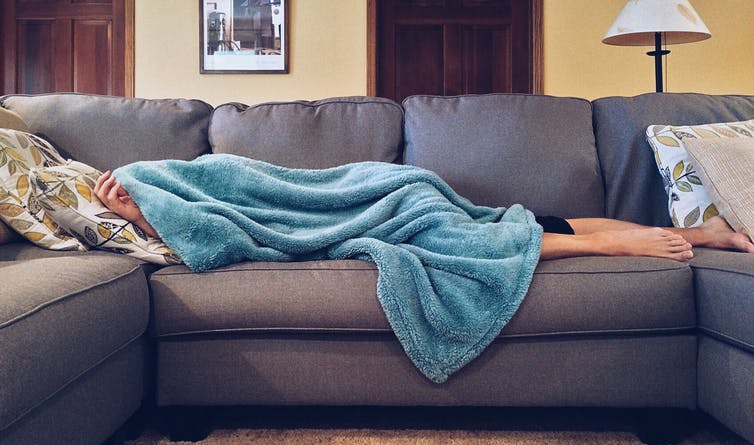Health
A mental disorder, not a personal failure: why now is the time for Australia to rethink addiction

We’re still grappling with what the long-term mental health effects of this period of fear, insecurity and social disconnection might be. (Pixabay photo)
The year 2020 has challenged us all. The bushfires and then the pandemic forced us to reflect on what’s important, how we respond to crises as a community, and the ways we connect and support each other.
We’re still grappling with what the long-term mental health effects of this period of fear, insecurity and social disconnection might be.
At the start of the pandemic we saw a surge in alcohol sales and reported drinking. Almost one-third of people who purchased more alcohol expressed concerns about their own drinking, or that of someone in their household.
People often turn to alcohol or other drugs to help cope with stress, financial pressures, loss and trauma. Increases in drinking are consistently reported after natural disasters, acts of terrorism and economic crises.
It’s therefore timely to reflect on our perceptions of addiction, who is affected, and how we respond.
What is addiction?
In simple terms, addiction is the inability to stop consuming a drug or cease an activity, even if it’s causing physical or psychological harm.
A common misconception is that it’s a result of a lack of willpower or poor self-control. But in reality, addiction is a complex health disorder with a range of biological, developmental and environmental risk factors, including trauma, social isolation or exclusion, and genetics.
Around one in four Australians will develop an alcohol, drug or gambling disorder during their lifetime, and around one in 20 will develop addiction, the most severe form of the disorder.
Despite common stereotypes, addiction doesn’t discriminate. It affects people of all ages and from all backgrounds.
Stigma is disabling
Addiction remains one of the most stigmatised of all health conditions globally. We grant compassion to people with health conditions like cancer, heart disease or diabetes, yet society doesn’t offer that same concern to someone with an addiction.
Too often, we blame the individual, believing the addiction is their fault. But addiction is an unfortunate consequence of something much more complex.
Read more:
Drug rehab: what works and what to keep in mind when choosing a private treatment provider
As a consequence of feeling shame and judgement, it can often take people many years to seek help. This is compounded by multiple barriers to treatment (such as geography, cost, waiting times and concerns about privacy).
Yet our refusal to have an honest conversation about how we respond to tobacco, alcohol, drug and gambling-related harm comes at a significant cost to the Australian community, exceeding A$175 billion annually.
A broken system
Across Australia, treatment for addiction remains fragmented, with limited opportunities for ongoing care. There’s no consistent national planning, despite evidence that for every $1 invested in treatment, society gains $7.
The situation is exacerbated by a health workforce that has had limited opportunities for undergraduate and postgraduate training in addiction, meaning emergency and primary care systems frequently struggle to respond.
This is in stark contrast with other chronic health conditions, such as diabetes, asthma and heart disease, where there are clear training pathways, clinical guidelines and national models of care.
So, many individuals suffering from addiction and their families are left to navigate their own pathways to treatment.
A tragic consequence of this fragmented and failing system is that we continue to see preventable deaths associated with different types of addiction.
Read more:
How a simple brain training program could help you stay away from alcohol
Tackling the stigma
The recent SBS documentary series Addicted Australia follows ten brave Australians and their families as they seek professional help for addiction over a six-month period. It’s an important step in challenging prevailing myths and stereotypes around addiction.
The series opens the door to the realities of addiction, providing viewers with a deeper understanding of the disorder, the devastating effect it has on individuals and families, and what effective treatment and recovery looks like when people have access to a holistic model of care.
The hope is that this series will help change community perceptions about the reality of addiction, elevate expectations about what treatment should look like, and alter the narrative such that recovery is not just a possibility, but like for other health conditions, is a realistic goal.
A call to action
Treating addiction like any other health disorder has to start with strong public policy reform and intervention to ensure the health system is adequately supported and resourced, so accessible and timely treatment is available to people who need it.
Until we change how we view addiction — from personal failure to a mental disorder, something we cannot control any more than we can control cancer — Australians, and millions globally, will continue to suffer.
We’ve partnered with more than 40 organisations to develop a national campaign, “Rethink Addiction”, that calls for a national action plan for addiction treatment and advocates for a change to Australia’s attitude and response to addiction.
We encourage anyone who has been touched by addiction or is passionate about reducing stigma to share their story and get involved in making the case for change.
After the year we’ve all had, there’s no better time to rethink addiction.
Read more:
We’re told to ‘gamble responsibly’. But what does that actually mean?
![]()
Dan Lubman, Executive Clinical Director, Turning Point & Director of Monash Addiction Research Centre, Monash University
This article is republished from The Conversation under a Creative Commons license. Read the original article.





















